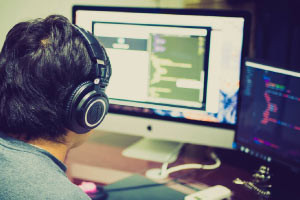This course begins by discussing the importance of programming languages. You will study the binary number system and learn how to convert between binary, hexadecimal, and decimal. This course also explains why you need to include statements in your programs. You will learn the role of RAM in programming a language as well as study the structure that defines all programs, how functions work and run in your program, and what syntax is.
You will then look into the fundamentals of numbers, variables, and arrays. This course will then teach you how to use pointers, constants, and strings. You will learn the difference between a variable and a constant, where and how constants are stored, and how to create an array. You will also study the importance of pointers in programming, how to change the address a pointer is pointing at, and how to display the memory address of a pointer.
In this concise course on programming in C, all you have to do is dedicate a few hours of your time each day and you'll soon be on your way to an exciting and productive career. A deeper understanding of the C programming language and its key concepts and features is essential for C programming competency, start this course today to learn more about programming in C.
What You Will Learn In This Free Course
View All Learning Outcomes View Less All Alison courses are free to enrol, study, and complete. To successfully complete this Diploma course and become an Alison Graduate, you need to achieve 80% or higher in each course assessment.
Once you have completed this Diploma course, you have the option to acquire an official Diploma, which is a great way to share your achievement with the world.
Your Alison certificate is:
- Ideal for sharing with potential employers.
- Great for your CV, professional social media profiles, and job applications.
- An indication of your commitment to continuously learn, upskill, and achieve high results.
- An incentive for you to continue empowering yourself through lifelong learning.
Alison offers 2 types of Diploma for completed Diploma courses:
- Digital Diploma: a downloadable Diploma in PDF format immediately available to you when you complete your purchase.
- Physical Diploma: a physical version of your officially branded and security-marked Diploma
All Diplomas are available to purchase through the Alison Shop. For more information on purchasing Alison Diploma, please visit our FAQs. If you decide not to purchase your Alison Diploma, you can still demonstrate your achievement by sharing your Learner Record or Learner Achievement Verification, both of which are accessible from your Account Settings.











 Avg. Hours
Avg. Hours  Contains Video
Contains Video  CPD Accredited
CPD Accredited 
 Total XP:
Total XP: 
 Knowledge & Skills You Will Learn
Knowledge & Skills You Will Learn 






